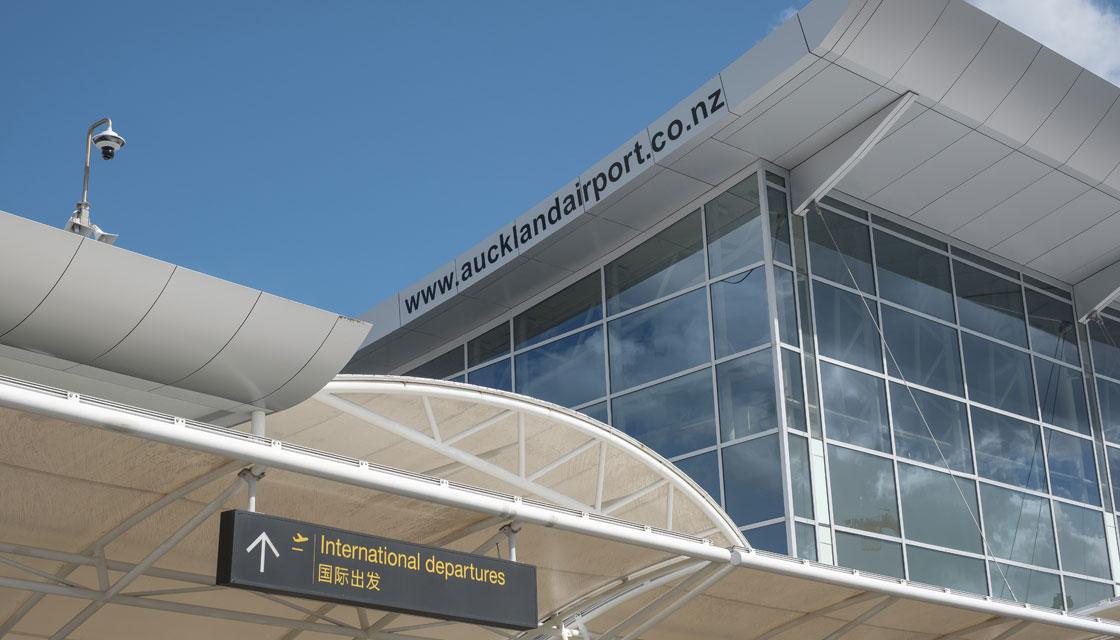A man who was recorded as a confirmed case of COVID-19 on Saturday may have contracted the virus during a flight from Christchurch to Auckland, health officials have speculated.
Two household contacts of the man have now also become infected, the Ministry of Health confirmed on Sunday.
It remains unclear how the original case - who is not connected to the Auckland cluster - contracted COVID-19.
The man, a recent returnee, arrived in New Zealand from India on August 27 and completed his 14 days of mandatory managed isolation, health officials confirmed. He returned two negative test results while at the Christchurch facility and returned home to Auckland on September 11.
However, the man only began presenting symptoms of the virus - which include a dry cough, fatigue and fever - on September 16, 20 days after arriving in New Zealand. He was once again tested for COVID-19 and returned a positive result.
Although the origin of the man's infection remains under investigation, genome sequencing shows his case is consistent with two others who tested positive after travelling on the same flight from India.
The Ministry of Health says it's possible the man may have contracted the virus during the flight and had an "extremely long" incubation period - the period between exposure to an infection and the appearance of its first symptoms.
There is evidence that in rare cases, the virus' incubation period may last up to 24 days.
- One new case of COVID-19 found in the community, one in isolation
- CORONAVIRUS Chinese virologist's claim COVID-19 is artificial slammed by experts
- Hypocrisy at its best.
- Wuhan virus made in lab? Chinese virologist has 'proof'
"This person developed symptoms 21 days after he arrived in New Zealand. If this is the case, it sits well outside the standard incubation period of the virus," the ministry said in a statement on Sunday.
The vast majority of people who are infected with COVID-19 will become unwell within 14 days of being exposed to the virus. The two-week incubation period has been consistently used as a guideline for how long contacts of a confirmed case should remain in self-isolation, including in New Zealand. New arrivals who return to the country must complete 14 days of managed isolation - and return two negative test results - to ensure they are not infectious when they re-enter the community.

Modelling has confirmed that 14 days in a managed isolation and two tests leaves a "very low risk" that an individual with COVID-19 will be released into the community, the ministry reiterated.
On Sunday, health officials also acknowledged the possibility that the man may have become infected during his flight from Christchurch to Auckland.
"The case that tested positive for COVID-19 after completing managed isolation requirements in Christchurch travelled to Auckland on a government-chartered flight (not a domestic commercial flight)," a Ministry of Health spokesperson says.
"The other passengers on the flight were also from Christchurch Managed Isolation and Quarantine Facilities (MIQFs)."
Passengers who travelled on the flight are currently being contacted and assessed as a precautionary measure, in order to exclude them as the source of infection.
"This case is another example of the tricky nature of the virus, and a reminder that anyone who has been through a managed isolation facility should remain very aware of their health," the ministry said.
"Anyone who develops symptoms of COVID-19 should get tested and self-isolate while awaiting results as these people did."
Four new cases were recorded on Sunday - the two aforementioned household contacts of Saturday's case, and two imported cases which were detected in managed isolation facilities.




